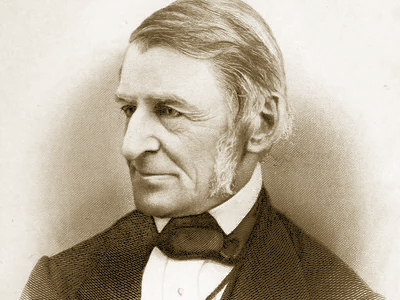Ralph Waldo Emerson, born on May 25, 1803, in Boston, Massachusetts, was an American philosopher, essayist, and poet who played a significant role in shaping American literature and thought. Emerson’s writings, deeply influenced by transcendentalism—a philosophical movement emphasizing the importance of individual intuition, spirituality, and self-reliance—explore themes of nature, self-discovery, and the inherent divinity of humanity. This biography delves into the life and intellectual journey of Ralph Waldo Emerson, tracing his path from a young minister to becoming one of America’s most influential thinkers.
Emerson was raised in a religious and intellectually stimulating environment. His father, William Emerson, was a Unitarian minister, and his mother, Ruth Haskins Emerson, encouraged his education and love for literature. Emerson’s early exposure to books and ideas shaped his curious mind and laid the foundation for his future intellectual pursuits.
After completing his studies at Harvard Divinity School, Emerson followed in his father’s footsteps and became a minister. However, his religious beliefs underwent a transformation as he embraced transcendentalist ideas and questioned traditional religious doctrines. Emerson’s growing dissatisfaction with formal religion led him to resign from the ministry and embark on a path of intellectual exploration and writing.
In 1836, Emerson published his seminal essay, “Nature,” which laid out the principles of transcendentalism and introduced his philosophy of the inherent spiritual connection between nature and humanity. This essay marked the beginning of Emerson’s literary career and established him as a leading figure of the transcendentalist movement.
Emerson’s subsequent essays, including “Self-Reliance” and “The Over-Soul,” further expounded upon his transcendentalist beliefs and promoted the idea of individualism, urging readers to trust their own intuition and reject conformity. He championed the power of self-reliance, encouraging individuals to look inward for guidance and to find their own truths rather than relying on societal conventions.
Emerson’s prose was characterized by its lyrical and poetic style, blending philosophical insights with vivid descriptions of nature. He believed that nature served as a mirror of the soul, reflecting humanity’s innermost thoughts and emotions. Through his writing, Emerson sought to awaken readers to the beauty and spiritual significance of the natural world, fostering a deeper connection between individuals and the environment.
Beyond his essays, Emerson also delivered influential lectures throughout his career, captivating audiences with his eloquence and thought-provoking ideas. His lectures covered a wide range of topics, from literature and philosophy to social and political issues, leaving a lasting impact on those who attended.
Emerson’s writings and lectures had a profound influence on American intellectual and cultural life. His ideas resonated with a generation of thinkers and writers, including Henry David Thoreau, Walt Whitman, and Margaret Fuller, who embraced and expanded upon his transcendentalist principles.
Despite his influential role in shaping American thought, Emerson faced criticism and controversy during his lifetime. His unconventional ideas and rejection of traditional religious beliefs challenged the status quo and received mixed responses from society. However, his legacy as a philosopher, essayist, and champion of individualism endured and continues to inspire generations of readers and thinkers.
Ralph Waldo Emerson’s impact on American literature and philosophy cannot be overstated. Through his exploration of transcendentalism, he encouraged individuals to seek truth and meaning within themselves and to forge their own paths. His writings remain an enduring testament to the power of self-discovery, the beauty of nature, and the limitless potential of the human spirit. Emerson’s legacy as a profound thinker and wordsmith solidifies his place as one of America’s greatest intellectual figures.










